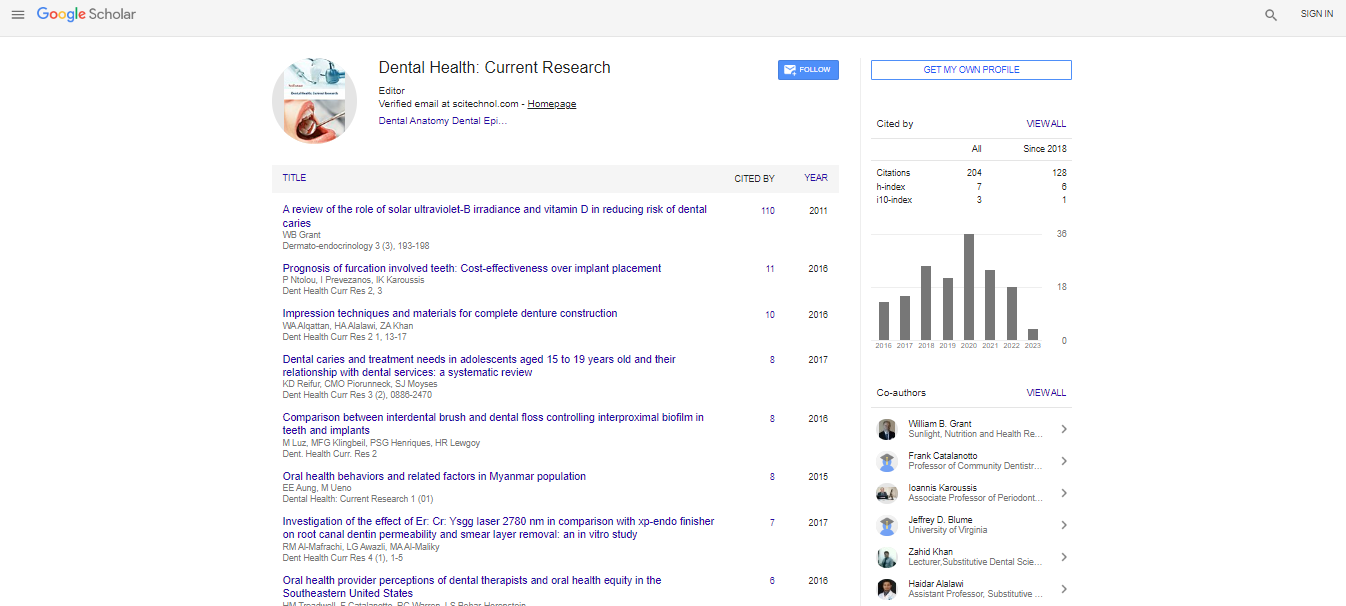Does treatment methods of mandibular Condylar Fracture predict the postoperative patients satisfaction?
Krishna Prasad Regmi
Xi’an Jiaotong University, China
: Dent Health Curr Res
Abstract
Purpose: There is not a universally accepted standard treatment protocol for the condylar fracture. The intent of this study is to explore the factors that are most responsible for the pleasing postoperative response. Patients and Methods: This study was a single-centre retrospective cohort study. The sample was composed of the cases of mandibular condylar fracture collected from the Craniomaxillofacial Trauma Unit of study hospital between January 2011 and September 2015. The Predictor variables were age, gender, occupation, cause of injury, injured side, combined injury, degree of displacement and damage shift, position of fracture, treatment timing, treatment method, and fracture reduction situation. The outcome variable was postoperative satisfaction (overall, physician and patient). Descriptive, univariate, and multivariate statistics were computed. P value was set at 0.05. Results: The sample was constituted of 102 cases. Male to female ratio was 2.1:1 with an average age of 29.02 ± 13.55 years. Manual workers were more; the primary cause was fall injury (50%). The most common combined fracture was mandibular symphysis fracture; condylar neck fractures in 64 sides (52%). The ratio of conservative versus surgical treatment was 1:2.73. The cause of injury, fracture displacement, treatment time and fracture reduction condition have the significant association with overall postoperative satisfactions (P<0.05).Whereas fracture displacement was excluded in patient satisfaction model(P>0.05) and occupation was affixed on it(P<0.05). Conclusion: The result of this study infers that the overall treatment effect is good or not good highly depends on the level of patients satisfaction. This level would be high with treatment timing as early as possible and the good quality of fracture reduction. Violent injury unfavorably affects the outcome, and the mental workers bear the result reasonably. However, it is not within the control of treatment methods and fracture displacement.
Biography
Krishna Prasad Regmi has completed his Bachelor of Dental Surgery (BDS) in 2010 from Tribhuvan University, Nepal . He is currently pursuing Master of Dental Surgery(MDS) in Oral and Maxillofacial Surgery at School of Medicine of Xi’an Jiotong Univeristy,China. He is life member of Nepal Dental Association (NDA) and served as the general secretary of a regional branch of NDA for the tenure 2012 to 2014.He is also a trainee member of International Association of Oral and Maxillofacial Surgeons (IAOMS). Recently, he published an article in an internationaly reputed peer reviewed journal.
 Spanish
Spanish  Chinese
Chinese  Russian
Russian  German
German  French
French  Japanese
Japanese  Portuguese
Portuguese  Hindi
Hindi 